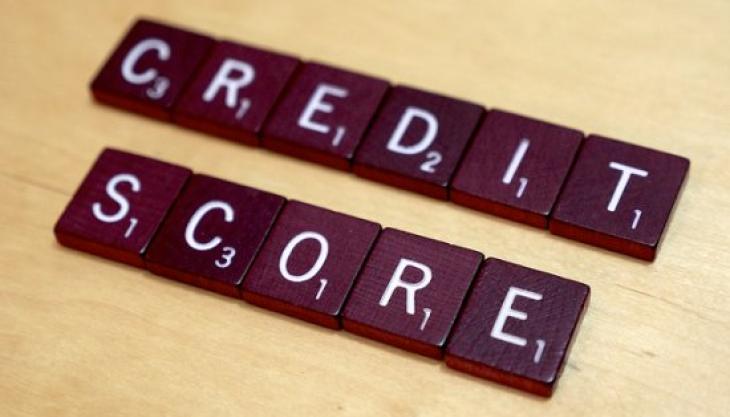Paying Your Debts Can Lower Your Credit Score – Here’s Why…
Submitted by Rachel R on Fri, 01/29/2016 - 9:34am

Some debts may be better left unpaid- here's why
Image Source: Flickr User Simon Cunningham
If you are planning on buying a house or car, but your credit score is too low to get an approval – or to get anything but a subprime interest rate – you know you need to clean up your credit report. But many consumers wrongly assume that the best approach is to tackle old debts that they feel are dragging down their FICO score. In fact, this may be the worst thing to do. Here’s why…
Paying on an old debt resets the credit report clock
Items typically stay on your credit report for seven years from the last date of activity. This means usuallya purchase or payment. So, for instance, if you had a car loan and your last payment was January 5, 2010, that loan would fall off your report on January 5, 2017. If you paid the car loan off in full, that’s not a big deal.
But say you stopped paying on the loan in 2010 even though the loan period was through 2012. You couldn’t afford to make the payments anymore, the lender repossessed your vehicle, sold it at auction, and that left a shortfall of $2,500 still showing as an open balance on your credit report. If you assume that negative older item is dragging down your credit score, you may want to settle the debt.
But what happens is you contact the lender, offer a negotiated amount of $800, and they accept because they haven’t heard from you in years and are willing to settle. That item would have fallen off your credit in 2017 – in just a year. But by paying that $800, you reset the clock, and the auto loan will reflect as a negative item for another seven years. That’s 2016 + 7 = 2023.
In most cases, allowing the debt to fall off your report is better than resetting the clock. Strange as it seems, negotiating to pay the old debt will worsen your credit score – and keep it lower for longer!
Requesting old items to be removed from your report can hurt your score
Another way that trying to “repair” your credit can actually hurt your score is having older items removed. One of the factors in your FICO score is how long you’ve had credit. Say your oldest listed account was opened 15 years ago – that’s good. But you had some late payments and there’s still a small balance owing. You may think getting it off your report is a good idea.
Perhaps the creditor incorrectly listed the date of last activity by a year or two. According to their dates, the debt will fall off your report in 2018. According to your records, the debt should be dead for credit reporting purposes this year. You can present your evidence to the credit reporting agencies (TransUnion, Equifax and Experian) and have them correct the item’s date and it will fall off.
But you may be surprised to learn that your score could likely drop after the item is purged. Why? If you had no other accounts 15 years old, and your next oldest account is only a couple of years old, purging the item makes your average age of credit activity much lower. The less time you’ve had credit, the lower your score will be. In this case, leaving the inaccurate account alone may be better.
How bankruptcy helps a credit score
If you want to buy a home, but that dream seems far away because you’ve got massive credit card debt, are living paycheck to paycheck and can’t save for a down payment, bankruptcy may be a good solution. Your unsecured debts such as credit cards and medical bills would be discharged. This can free up your money so you can start saving up a down payment.
Also, within just a few months from your discharge, you can start rebuilding your credit slowly and carefully. You could have a much higher score within a year or two of filing bankruptcy than you would have had if you continued struggling with debt and never getting ahead of your debt. However, taking control of your finances via bankruptcy can get you back on the right track faster.
Once you get a bankruptcy discharge, you can improve your credit score after bankruptcy by making smart financial choices, starting with a secured credit card then moving to an unsecured card, and using credit conservatively can be a much better route than muddling on in excessive debt. To find out more about debt relief and a credit score redo, contact the Law Offices of John T. Orcutt.
Call +1-833-627-0115 now for a free North Carolina bankruptcy consultation at one of our convenient locations in Raleigh, Durham, Fayetteville, Wilson, Greensboro or Wilmington.
Debts Hurt! Got debt? Need help? Get started below!
Serving All of North Carolina
- Bankruptcy Attorneys Raleigh NC (North)
- Bankruptcy Attorney Fayetteville NC
- Bankruptcy Attorney Durham NC
- Bankruptcy Attorneys Wilson NC
- Bankruptcy Attorneys Greensboro NC
- Bankruptcy Attorneys Southport NC
- Bankruptcy Attorneys Wilmington NC
Bankruptcy Attorneys Raleigh NC (North)
6616 Six Forks Rd #203 Raleigh, NC 27615 North Carolina
Tel: (919) 847-9750

Bankruptcy Attorney Fayetteville NC
2711 Breezewood Ave Fayetteville, NC 28303 North Carolina
Tel: (910) 323-2972

Bankruptcy Attorney Durham NC
1738 Hillandale Rd Suite D Durham, NC 27705 North Carolina
Tel: (919) 286-1695


Bankruptcy Attorneys Greensboro NC
2100 W Cornwallis Dr. STE O Greensboro, NC 27408 North Carolina
Tel: (336) 542-5993

Bankruptcy Attorneys Southport NC
116 N Howe St. Suite A Southport, NC 28461 North Carolina
Tel: (910) 218-8682

Bankruptcy Attorneys Wilmington NC
116 N. Howe Street, Suite A Southport, NC 28461 North Carolina
Tel: (910) 447-2987
